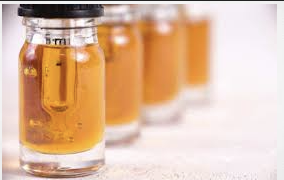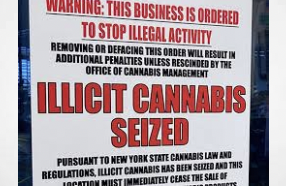The Detroit Free Press reports….
But even though the law doesn’t take effect until Dec. 6, prosecutors in Michigan, including in Macomb and Oakland counties, are beginning to quietly dismiss low-level marijuana criminal charges that will no longer be a crime after marijuana becomes legal in the state.
Macomb County Prosecutor Eric Smith sent a memo to staff last week, telling assistant prosecutors to begin the process of dismissing marijuana charges, such as use or possession of small amounts of weed.
Likewise, Oakland County’s Chief Assistant Prosecutor Paul Walton said Monday that the same is happening in Oakland.
There aren’t many low-level cases that are handled by county prosecutors, Walton said, indicating he’d only seen three requests to dismiss so far. Most are handled by city attorneys, who enforce municipal ordinance violations.
Wayne County Prosecutor Kym Worthy, as well as the Michigan State Police are still weighing options for marijuana enforcement as the legalization date draws near.
“Now that Proposal 1 has passed, the Wayne County Prosecutor’s Office is committed to following the law regarding the prosecution of marijuana cases,” Worthy said in a statement. “Overwhelmingly, the smaller marijuana cases are prosecuted by city attorneys. However, we currently have ticketed ordinance violations from the Michigan State Police that are pending review.
“Although the law is not retroactive, in the coming weeks we will assess the tickets that have already been charged, as well as those pending review, taking the new law into consideration,” she added.
The state Board of Canvassers unanimously certified the Nov. 6 election results Monday afternoon, ending a four-year effort for marijuana legalization. Proponents tried in 2016, but were thwarted by technical problems in getting the necessary signatures in time. This time, the issue succeeded, both in getting enough signatures to get legal weed on the ballot and winning on Nov. 6 by a convincing 56-44 percent margin.
“It’s a huge relief, it was a two-year process for this campaign, but there are people who have been working on this issue their entire adult lives,” said Josh Hovey spokesman for the Coalition to Regulate Marijuana like Alcohol, who spearheaded the marijuana campaign.
Jeffrey Hank, the director of MiLegalize which helped lead the effort in both 2016 and 2018, said he hopes the vote in Michigan will lead to changes on a federal level, which still considers marijuana as an illegal substance.
“There’s no reason why Michigan’s congressional delegation shouldn’t be vociferously pursuing federal reform,” he said. “There’s enough momentum now and I think Michigan may be the straw that breaks the camel’s back.”
The marijuana ballot proposal helped contribute to Michigan’s record-setting voter turnout on Nov. 6 when more than 4.3 million voters — or 58 percent of the state’s eligible voters — cast ballots.
“For a gubernatorial year, we smashed the record for turnout,” said Sally Williams, director of elections for the Secretary of State. “It looked more like a presidential year.”
One downside of the high turnout is that it translate into higher petition signature requirements to get issues on the ballot. Because the signature levels are tied to the gubernatorial vote, the number needed for a constitutional amendment will grow from 315,654 to 425,059, while a legislative initiative, like the marijuana ballot proposal, will increase from 252,523 to 340,047.



















